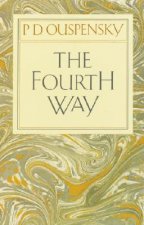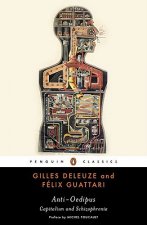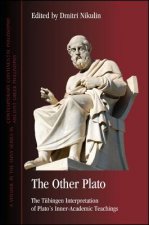
Code: 04902338
Aesthetics of Autonomy
by Farhang Erfani
The Aesthetics of Autonomy: Ricoeur and Sartre on Emancipation, Authenticity, and Selfhood argues that, despite their differences, Sartre and Ricoeur have a similar goal. While they are both anti-essentialists, they nevertheless a ... more
- Language:
 English
English - Binding: Hardback
- Number of pages: 166
Publisher: Lexington Books, 2011
- More about this

149.23 €

Low in stock at our supplier
Shipping in 12 - 17 days
Potřebujete více kusů?Máte-li zájem o více kusů, prověřte, prosím, nejprve dostupnost titulu na naši zákaznické podpoře.
Add to wishlist
You might also like
-

Theory of Decision under Uncertainty
150.76 € -

Unventions
13.82 € -4 % -

Beyond Cultural Imperialism
281.46 € -

Children's Mental Health Services
122.60 € -

Abacus Year 6 Textbook 3
16.07 € -

Geriatrics, An Issue of Veterinary Clinics: Small Animal Practice
80.19 € -

Science
187.64 € -

Project Management Techniques in Planning and Controlling Construction Projects 2e
223.18 € -

Singer's Repertoire, Part IV
82.75 € -

Postmodern Literature and Race
148.31 € -

Joos and Mathys: De aedibus 57
47.31 € -4 % -

Staatsrecht II
66.57 € -

Theorien Der Internationalen Beziehungen
95.86 € -

Bye-Bye Big Bang
12.28 €
Give this book as a present today
- Order book and choose Gift Order.
- We will send you book gift voucher at once. You can give it out to anyone.
- Book will be send to donee, nothing more to care about.
More about Aesthetics of Autonomy
You get 369 loyalty points
 Book synopsis
Book synopsis
The Aesthetics of Autonomy: Ricoeur and Sartre on Emancipation, Authenticity, and Selfhood argues that, despite their differences, Sartre and Ricoeur have a similar goal. While they are both anti-essentialists, they nevertheless advocate for the notions of selfhood and autonomy. Autonomy, for them, is the end result of an aesthetic path. An identity, at the individual or collective level, is created by weaving together contingent threads of the given. In other words, identity is a narrative construct. The first two chapters focus on the respective methods of Sartre and Ricoeur. Despite their different emphases, Farhang Erfani argues that they have a similar dialectical method, between the situation and our ability to surpass it for Sartre, and between sedimentation and innovation for Ricoeur. The third chapter brings them together and shows how they can complement each other in building a narrative identity at the individual level; Ricoeur is helpful in appreciating Sartrean notions of bad faith and authenticity. The fourth and final chapter turns to collective identity; Erfani argues that Ricoeur's notions of ideology and utopia are better complemented with Sartrean political ethics. Erfani advocates for a Sartrean model of "Dark Utopianism" that overcomes the limits of Ricoeur's political philosophy. Reading Sartre and Ricoeur together provides for a balanced approach to the question of autonomy that at once pays due attention to the weight of the situation and the past, while opening up the space for change, innovation, and progress. The conclusion, accordingly, applies this thesis to the question of globalization. Both Sartre and Ricoeur scholars will be eager to explore and debate the original synthesis presented in The Aesthetics of Autonomy. It also makes contributions to hermeneutics, post-War French philosophy, and philosophy of religion. Finally, given its emphases on politics and aesthetics, the book also places itself within arguments of political theory and literary theory.
 Book details
Book details
Book category Knihy po anglicky Humanities Philosophy History of Western philosophy
149.23 €
- Full title: Aesthetics of Autonomy
- Subtitle: Ricoeur and Sartre on Emancipation, Authenticity, and Selfhood
- Author: Farhang Erfani
- Language:
 English
English - Binding: Hardback
- Number of pages: 166
- EAN: 9780739112588
- ISBN: 0739112589
- ID: 04902338
- Publisher: Lexington Books
- Weight: 436 g
- Dimensions: 231 × 167 × 15 mm
- Date of publishing: 22. February 2011
Trending among others
-

Meditations
9.11 € -24 % -

The Myth of Sisyphus
8.08 € -

Meditations
20.07 € -21 % -

Why I Am so Clever
3.88 € -18 % -

Meditations
14.84 € -23 % -

Letters from a Stoic
12.38 € -15 % -

Simulacra and Simulation
19.14 € -17 % -

Either/Or
19.45 € -

Existentialism Is a Humanism
9.21 € -19 % -

Thus Spoke Zarathustra
9.82 € -24 % -

Critique of Pure Reason
18.53 € -21 % -

Discourses and Selected Writings
10.95 € -24 % -

Beyond Good and Evil
11.15 € -23 % -

On the Shortness of Life
8.59 € -18 % -

The Trouble With Being Born
13.20 € -19 % -

Ride the Tiger
21.29 € -19 % -

On War
5.52 € -26 % -

Logic of Desire
47.31 € -

Nietzsche
23.96 € -8 % -

Myth of Sisyphus
11.15 € -23 % -

History of Western Philosophy
25.70 € -

Human, All Too Human & Beyond Good and Evil
5.93 € -21 % -

How to Win an Argument
17.71 € -8 % -

Fragments
14.23 € -13 % -

Fourth Way
16.99 € -20 % -

Lyotard and the Political
61.55 € -

Brief History of Everything (20th Anniversary Edition)
16.89 € -21 % -

Parmenides and Presocratic Philosophy
83.88 € -

Norton Anthology of Western Philosophy: After Kant
91.46 € -4 % -

Nietzsche: A Very Short Introduction
10.13 € -22 % -

Aphorisms on Love and Hate
3.57 € -24 % -

Nausea
11.15 € -23 % -

The Symposium
9.62 € -23 % -

At The Existentialist Cafe
12.79 € -24 % -

Discourses, Fragments, Handbook
11.67 € -19 % -

Leviathan
9.52 € -16 % -

Spell of the Sensuous
17.10 € -12 % -

Phenomenology of Spirit
34.92 € -

Think
12.28 € -23 % -

Nicomachean Ethics
6.14 € -18 % -

World as Will and Representation, Vol. 1
25.39 € -13 % -

Socrates' Defence
3.57 € -24 % -

Anti-Oedipus
23.04 € -5 % -

World as Will and Representation, Vol. 2
25.90 € -17 % -

Meditations of Marcus Aurelius
8.18 € -12 % -

Consolations of Philosophy
12.90 € -24 % -

Queer Phenomenology
27.75 € -6 % -

Other Plato
46.29 € -

Republic
11.97 € -17 %
Osobný odber Bratislava a 2642 dalších
Copyright ©2008-24 najlacnejsie-knihy.sk Všetky práva vyhradenéSúkromieCookies


 21 miliónov titulov
21 miliónov titulov Vrátenie do mesiaca
Vrátenie do mesiaca 02/210 210 99 (8-15.30h)
02/210 210 99 (8-15.30h)